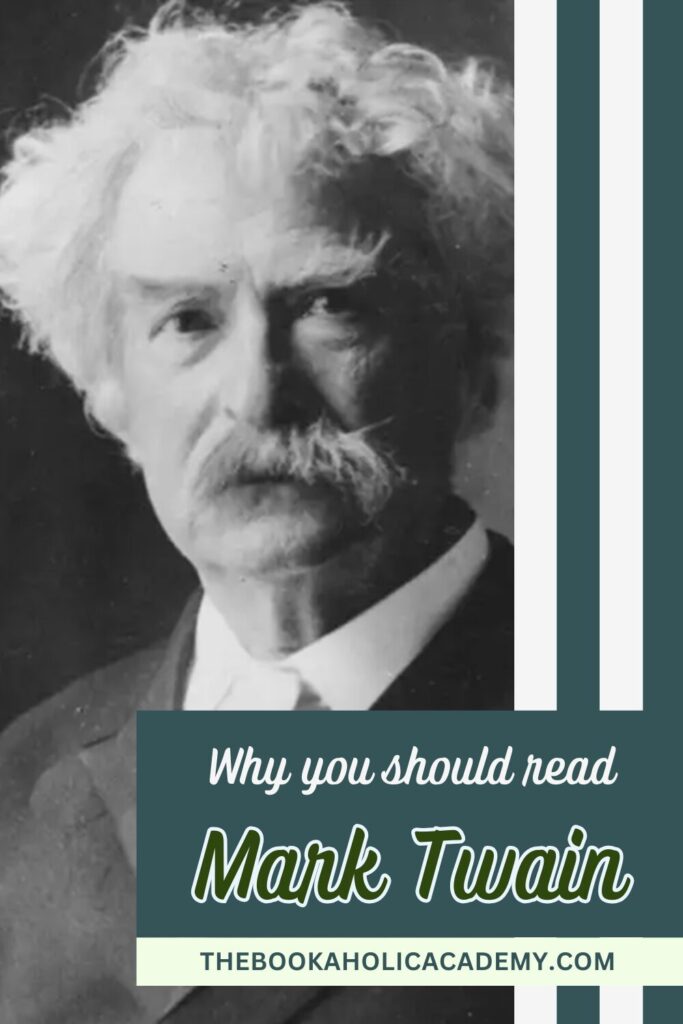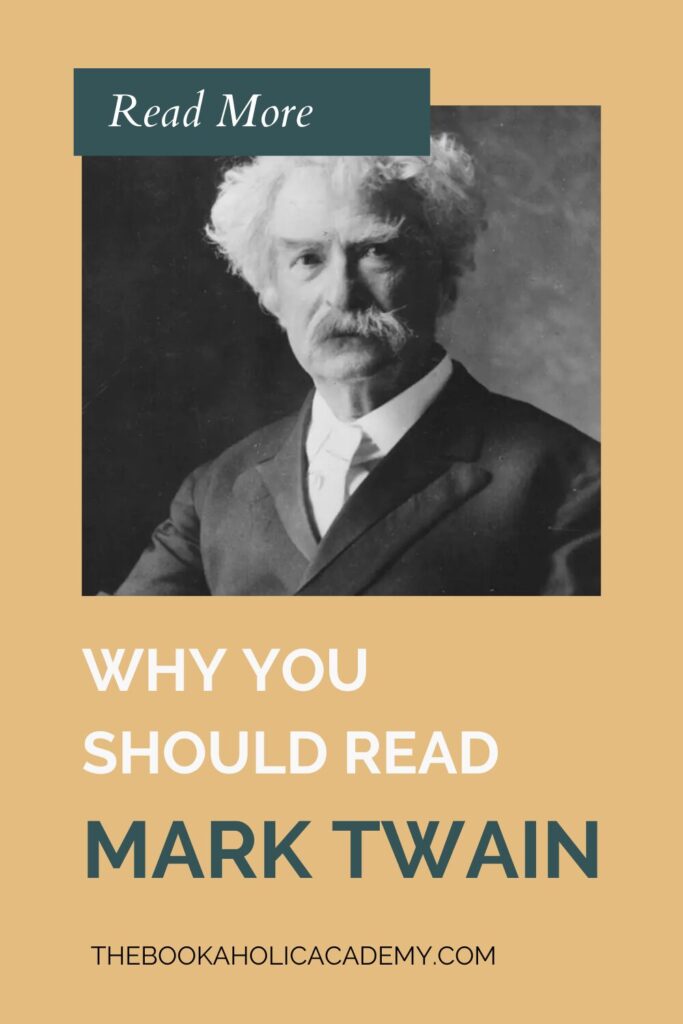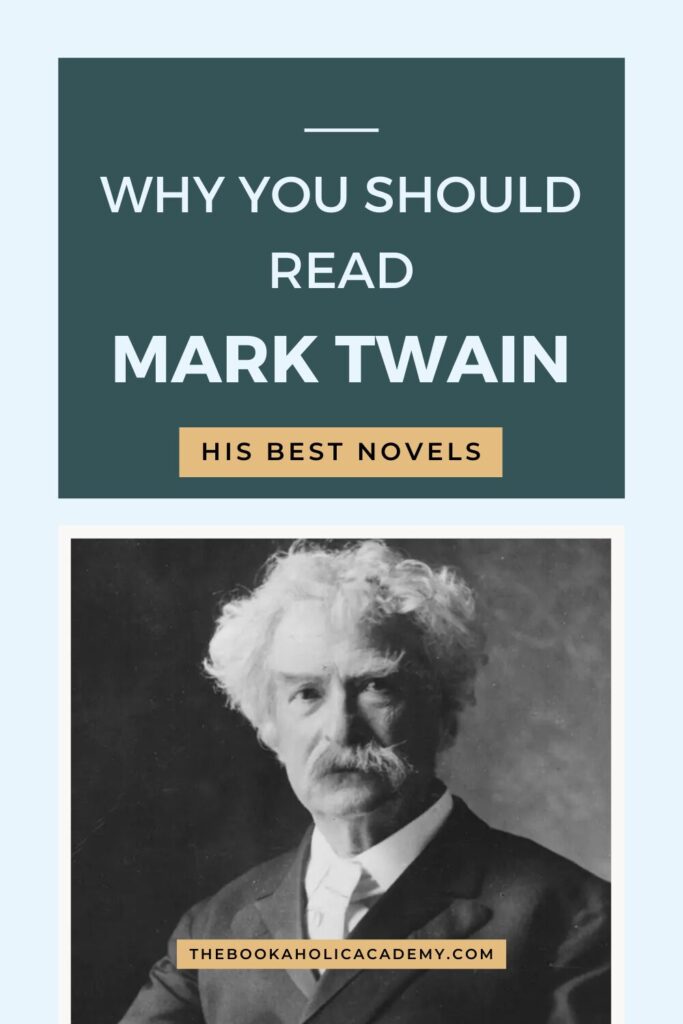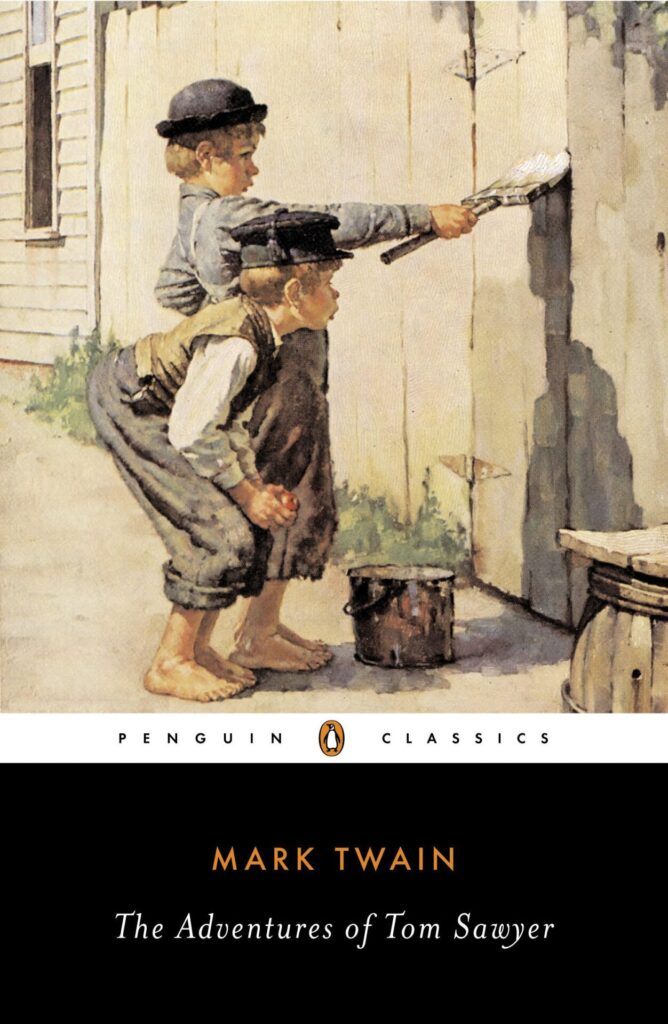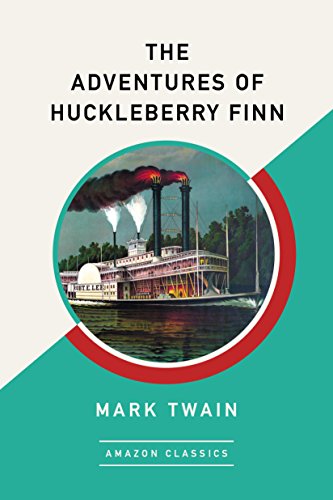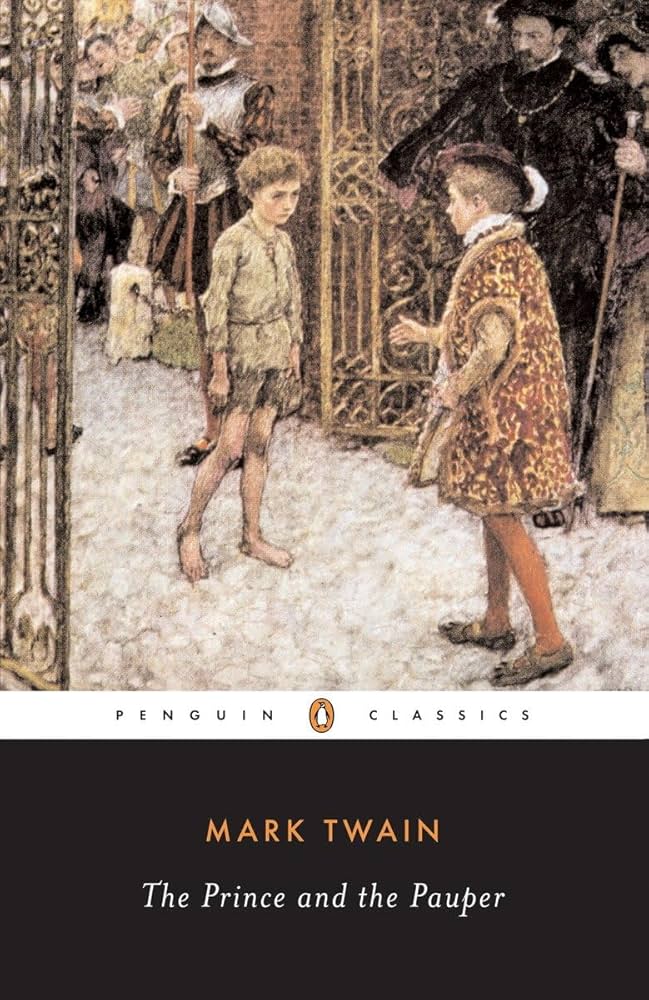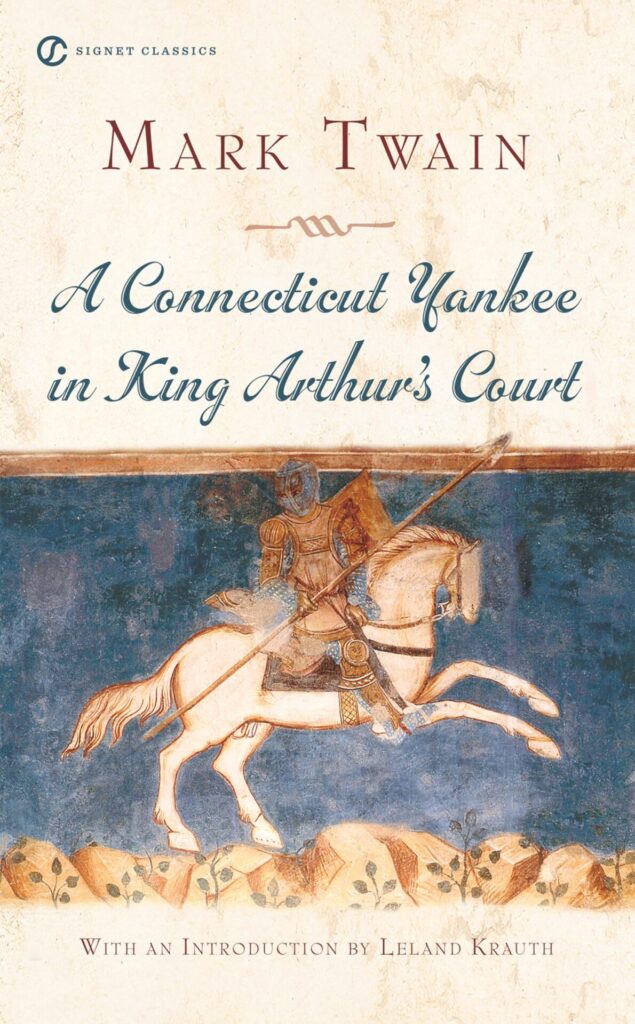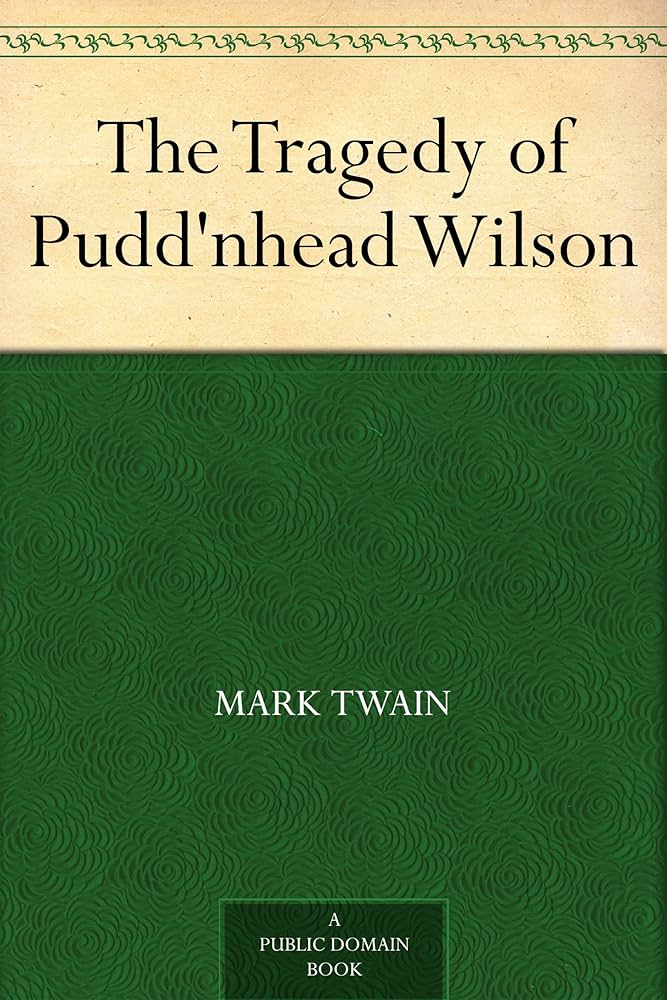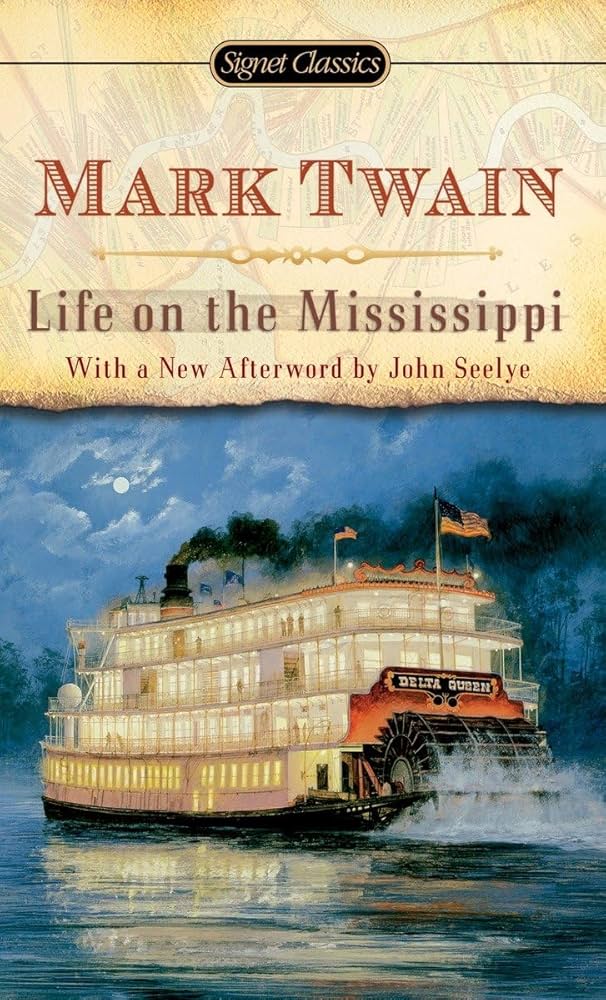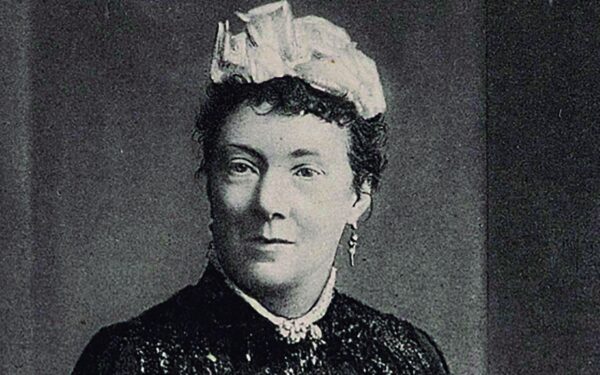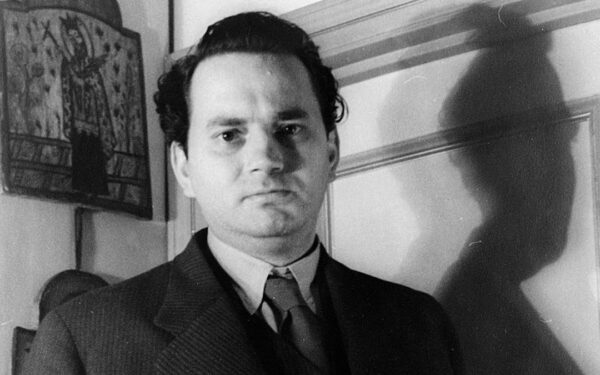Why You Should Read Mark Twain: His Best Novels

Disclaimer
This post may contain affiliate links. I will make a small commission if you make a purchase through one of these links, at no extra cost to you. See full disclosure and disclaimer policy HERE.
When was the last time you picked up a book that truly made you laugh, think, and question the world all at once? If you haven’t already, it’s time to dive into the works of Mark Twain. This literary icon isn’t just a writer; he’s a storyteller, a philosopher, and a social commentator who still feels strikingly relevant today. Let me tell you why reading Mark Twain should be next on your to-do list.
Table of Contents
Who Was Mark Twain?
Mark Twain, born Samuel Langhorne Clemens on November 30, 1835, in Florida, Missouri, is one of America’s most beloved and influential writers. Known for his sharp wit, keen social observations, and unforgettable storytelling, Twain earned the nickname “The Father of American Literature.” But he was more than just a guy with a pen—he was a humourist, a satirist, a social critic, and a voice of his time.
Twain’s life started modestly. He grew up in Hannibal, Missouri, a small town on the Mississippi River, which became the inspiration for some of his most famous works, like The Adventures of Tom Sawyer and Adventures of Huckleberry Finn. As a child, Twain experienced both the beauty and brutality of life along the river, which profoundly shaped his worldview and writing.
Before becoming a writer, Twain worked as a printer’s apprentice and later as a riverboat pilot on the Mississippi River. It was during his time as a pilot that he adopted the pen name “Mark Twain,” a riverboat term meaning “two fathoms deep”—a safe depth for navigation. Pretty cool, right?
Twain didn’t stick to one profession. He wore many hats over the years: miner, journalist, lecturer, and, of course, author. His books weren’t just entertaining—they explored deep themes like morality, freedom, and social justice, often with biting humour and a touch of irreverence.
Twain also travelled extensively and wrote about his experiences in books like The Innocents Abroad and Roughing It. These works combined travel writing with humour, offering readers a hilarious yet insightful glimpse into different cultures and customs.
He passed away on April 21, 1910, just as Halley’s Comet—which had appeared the year he was born—made its return, a poetic ending to an extraordinary life.
Social Critic and Satirist
Mark Twain wasn’t just a storyteller; he was a social commentator who wasn’t afraid to challenge the status quo. He used humour and satire to address some of the most pressing issues of his time, including racism, inequality, and the absurdity of human behaviour. His works often reflect a deep scepticism of authority and societal norms, which made him both loved and controversial.
He’s Hilarious (And We All Need a Good Laugh)
Mark Twain had a knack for wit that’s sharper than a freshly honed pencil. His humour isn’t just about making you laugh—it’s about sneaking profound truths into your brain while you’re too busy chuckling to notice. Whether he’s poking fun at human nature or lampooning societal norms, Twain’s humour transcends time. Who doesn’t need a little more cleverness and laughter in their life?
His Stories Are Timeless Adventures
Reading Mark Twain feels like stepping into a time machine and embarking on an unforgettable journey. From the idyllic banks of the Mississippi River to the bustling streets of Europe, his stories transport you to places that feel alive and vivid. Twain doesn’t just tell you about these worlds—he drops you right in the middle of them.
RELATED:
American Classic Literature Books: A Journey Through Time
He’s Brutally Honest About Society
Twain wasn’t afraid to call out the flaws and hypocrisies of the world around him. Whether it’s racism, class inequality, or the absurdity of human behaviour, his works are filled with sharp social critiques that are just as relevant now as they were in his time. It’s like he had a crystal ball and could see straight into the future.
He Makes You Think (Without Preaching)
Twain’s writing is like an onion—layered, complex, and guaranteed to make you tear up (sometimes from laughter, sometimes from emotion). His stories often pose big questions: What does it mean to be free? How do we decide what’s right and wrong? Why do people act the way they do? But here’s the thing—Twain doesn’t force answers down your throat. He gives you the tools to think for yourself.
Most Notable Novels
Mark Twain wrote a variety of novels that left a mark on American literature and continue to captivate readers worldwide. His works explore themes like adventure, morality, human nature, and social justice, often wrapped in humour and sharp satire. Here’s a list of Twain’s most notable novels that you should consider adding to your reading list:
1. The Adventures of Tom Sawyer (1876)
This coming-of-age tale is a nostalgic and humorous dive into the mischievous life of Tom Sawyer, a boy growing up along the Mississippi River. Whether he’s tricking his friends into whitewashing a fence or hunting for treasure with Huck Finn, Tom’s adventures capture the innocence, curiosity, and rebellious spirit of childhood. This book is a timeless favourite, offering both fun and subtle commentary on life in small-town America.
2. Adventures of Huckleberry Finn (1885)
Often considered Twain’s masterpiece, this novel is far more than an adventure story. It’s a powerful exploration of freedom, morality, and friendship, told through the eyes of Huck Finn, a runaway boy, and Jim, an escaped slave. Their journey down the Mississippi River isn’t just physical—it’s a moral and emotional voyage that challenges the societal norms of the time. Twain’s biting critique of racism and hypocrisy makes this book a cornerstone of American literature.
3. The Prince and the Pauper (1881)
In this clever tale, Twain tells the story of two boys—one a prince, the other a pauper—who swap lives. Through their experiences, Twain critiques the class divisions and social inequalities of the 16th century (and, by extension, his own time). The novel is both an engaging story and a sharp social commentary, showcasing Twain’s versatility as a writer.
4. A Connecticut Yankee in King Arthur’s Court (1889)
What happens when a 19th-century engineer from Connecticut is transported back to the medieval world of King Arthur’s court? Chaos, hilarity, and biting satire. Twain uses this time-travel tale to poke fun at romanticized notions of chivalry and feudalism, while also critiquing modern industrialization and human folly. It’s part science fiction, part historical parody, and entirely unique.
5. The Tragedy of Pudd’nhead Wilson (1894)
This lesser-known but equally powerful novel explores themes of race, identity, and social status in a small Southern town. Through the story of a mix-up between two babies—one born into slavery and the other into privilege—Twain exposes the absurdities of racism and the arbitrary nature of social hierarchies. The book’s courtroom drama and Twain’s sharp wit make it a compelling read.
6. Life on the Mississippi (1883) (Honourable Mention)
While not a novel in the traditional sense, this semi-autobiographical work deserves mention. Twain reflects on his experiences as a young riverboat pilot on the Mississippi River, blending personal anecdotes with historical observations. It’s a love letter to the river that shaped so much of his life and writing, offering insight into the man behind the pen.
Twain’s novels transcend entertainment. They reflect the complexities of human nature and society, tackling heavy themes like freedom, morality, and justice with humour and wit. So, which one will you pick up first?
His Writing Feels Surprisingly Modern
For a guy who was born in 1835, Twain’s writing is ridiculously relatable. His observations about human nature, politics, and society could easily apply to today’s world. Twain had an uncanny ability to tap into universal truths, and that’s why his works have stood the test of time.
Even his language feels accessible. Unlike some classic authors who bury their brilliance under piles of flowery prose, Twain wrote the way people spoke. His straightforward, conversational style makes his stories feel fresh, even over a century later.
Conclusion
Mark Twain isn’t just an author; he’s an experience. Whether you’re in the mood for a laugh, an adventure, or a dose of unvarnished truth, Twain delivers it all with a wit and warmth that’s hard to find elsewhere. His works are like old friends—comforting, thought-provoking, and always ready with a great story.
So, grab a Twain classic and see for yourself. Whichever book you choose, you’re in for a treat.
FAQs
Did you like it? Pin this post for later!
